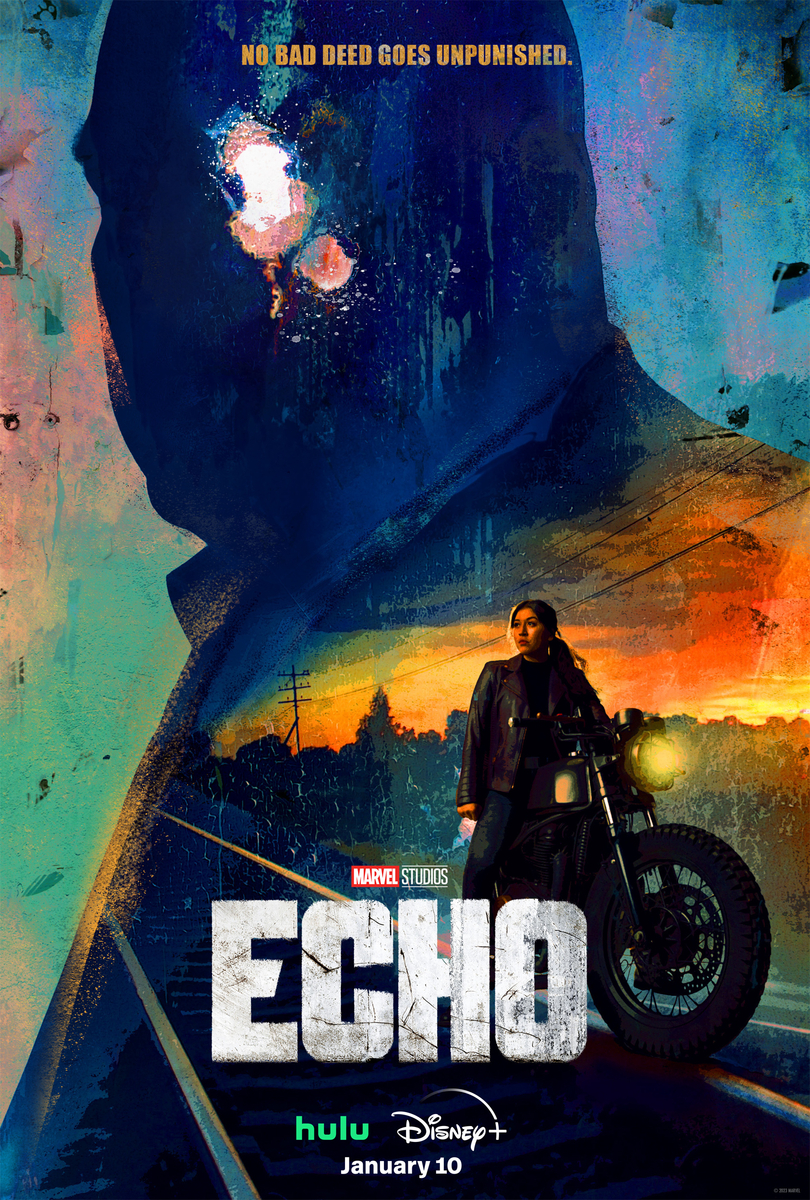Last week, we asked Native News Online social media followers what they think of Marvel Studios' “Echo,” streaming on Disney+ and Hulu.

The show centers around Maya Lopez, a deaf Choctaw superhero who attempts to process the death of her father and embrace her Indigenous roots and family. Over five episodes, the show dives into Maya’s Choctaw culture and roots in an exploration of her origin story.
Here are some of the responses around Indian Country:
I loved it but wanted more (it seems like some parts of the story were cut short).
Makes me want to watch "Reservation Dogs" again.
—Michael P. Murray
Awesome series. Awesome talent. Loved it. Hopefully more episodes will be coming.
—Linda Janis
Loved it! Alaqua Cox was amazing and the whole cast was stellar! Loved the twist at the ending and the focus on important, strong women. I was lucky to see the screening of the first two episodes at the Autry in LA last week!
Loved the representation for Deaf communities and others with disabilities. Not to mention the assistive technology!
—Rachel J. Allen
I loved it. It was good to have it be about the Choctaw Nation. Good story, great acting.
— Kit Mason
It was so cool to see the Choctaw Nation being represented. Marvel has been doing great with bringing in different Indigenous people...the Mayan and Mohawk.
— Frank Day
Loved it! Such a great story of strength and family.
—Karen Platt Brennan
More Stories Like This
Chickasaw Holiday Art Market Returns to Sulphur on Dec. 6Center for Native Futures Hosts Third Mound Summit on Contemporary Native Arts
Filmmakers Defend ‘You’re No Indian’ After Demand to Halt Screenings
A Native American Heritage Month Playlist You Can Listen to All Year Long
11 Native Actors You Should Know
Help us defend tribal sovereignty.
At Native News Online, our mission is rooted in telling the stories that strengthen sovereignty and uplift Indigenous voices — not just at year’s end, but every single day.
Because of your generosity last year, we were able to keep our reporters on the ground in tribal communities, at national gatherings and in the halls of Congress — covering the issues that matter most to Indian Country: sovereignty, culture, education, health and economic opportunity.
That support sustained us through a tough year in 2025. Now, as we look to the year ahead, we need your help right now to ensure warrior journalism remains strong — reporting that defends tribal sovereignty, amplifies Native truth, and holds power accountable.
 The stakes couldn't be higher. Your support keeps Native voices heard, Native stories told and Native sovereignty defended.
The stakes couldn't be higher. Your support keeps Native voices heard, Native stories told and Native sovereignty defended.
Stand with Warrior Journalism today.
Levi Rickert (Potawatomi), Editor & Publisher


